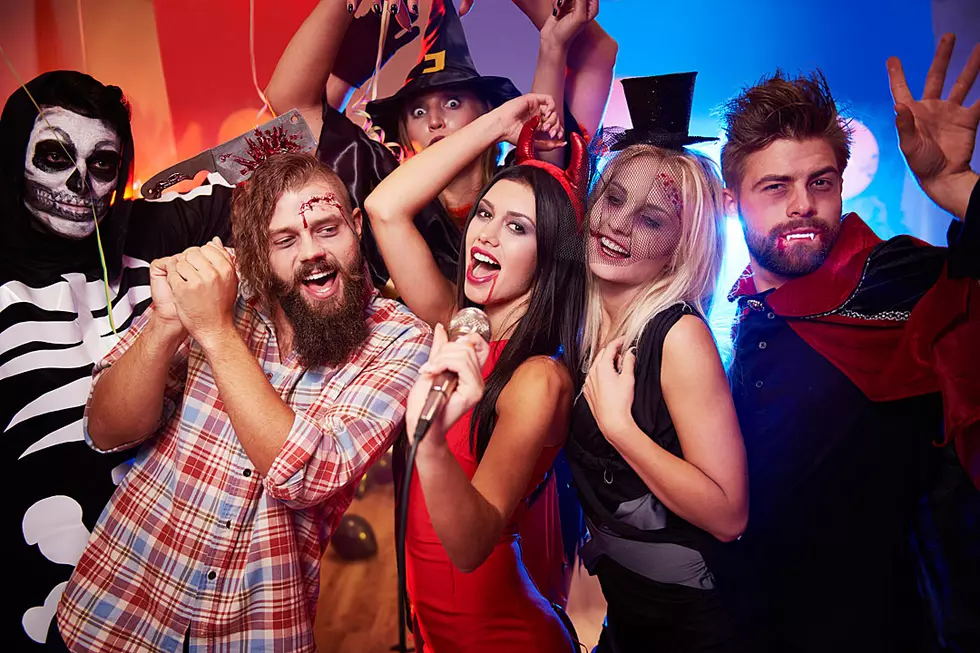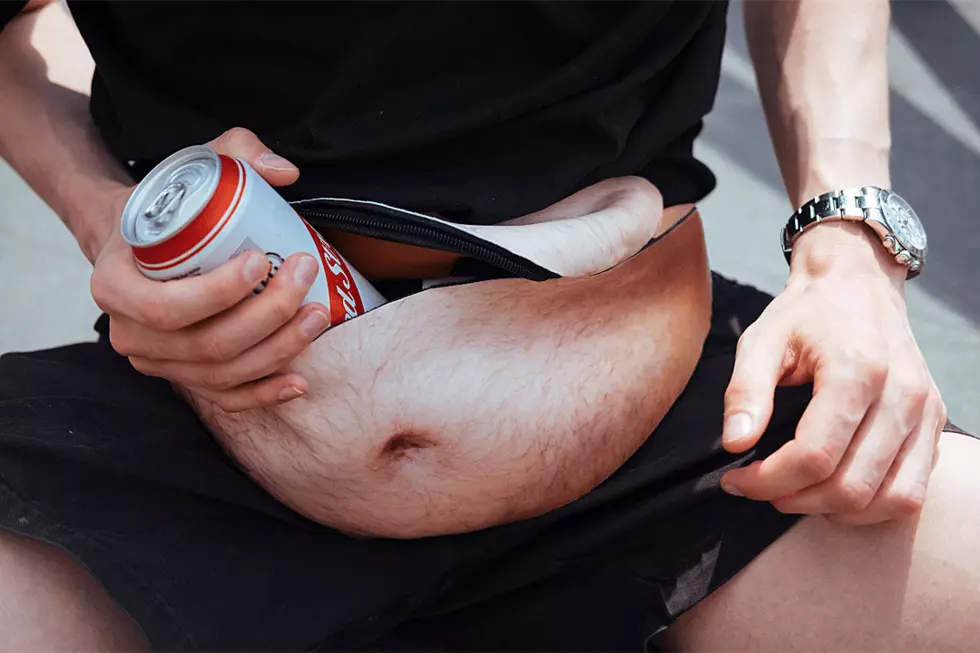![Therapy Through Comedy Podcasts [OPINION]](http://townsquare.media/site/390/files/2012/06/podcastcollage.jpg?w=980&q=75)
Therapy Through Comedy Podcasts [OPINION]
Podcasting isn't going away any time soon. For some listeners, it's just a daily distraction, but for others listening to podcasts is oddly therapeutic.
In an increasingly demanding world—a place filled with rejection, ever so high expectations, a little bit of backstabbing and often a pinch of competition and narcissism—it’s no wonder we tend to get down on ourselves, overwhelmed even. Everyone does.
Between our careers, attempting to get by financially during tough times, and constantly feeling pressured by the media, the entertainment industry and most aggressively our own internal naysayers, to look and be the very best version of ourselves, how do we stay sane and find relief? In a country where an enormous amount of its citizens suffer from depression, anxiety and negative thinking how do we keep afloat and begin to feel better in order to actually like whom we are as individuals?
Well, it seems that the old saying holds true: laughter is the best medicine. But today it’s not necessarily laughing while sitting and watching television all of the time. Now, it’s on the trains, the buses, in cars and even while walking. It’s when we have those headphones comfortably tucked into our ears that we begin to feel ease and some amount of solace. In the past, passing someone on the streets with a pair of headphones glued to their ears meant they were immersed in some sort of music, but that isn’t always the case today. Nowadays it turns out the options are endless. But it’s inevitable that many of those passersby are connecting with others and finding comfort by means of the comedy podcast.
The medium of podcasting has been a booming one for the past several years. Scour the iTunes store and you’ll find an incredibly lengthy line of ones to choose from, most of which are hosted by either comedians themselves, professional improvisers or performers who tend to have comedians on as guests. Take your pick: 'Never Not Funny', 'WTF with Marc Maron', 'Professor Blastoff', 'Ronna & Beverly', 'Comedy Bang Bang', 'The Adam Carolla Show', 'The Ricky Gervais Podcast', 'The Nerdist', 'The Pod F. Tompkast', and a host of others.
The truth is that none of us are fully sane on the inside, no matter what we tend to exude in public. Every one of us has little quips and tendencies that are seen as either unique or crazy, often both. Yet for some reason, through the comedy podcast, we’re all beginning to feel a bit less alone in the world of many. We’re feeling at ease with the realization that we are not the only ones who are constantly in our own heads battling demons to which we are not certain of the outcome.
If you look at the art of comedy, stand up comedy in particular, as a whole it appears the entire art is used to bring out the tiny idiosyncrasies, oddities and absurdities of our culture in order to allow everyone to see that they are, in fact, on an even playing ground. No one is perfect; everyone has a thing. While some comics use their time onstage to deconstruct society others use it to deconstruct themselves, thus to a degree acting as therapy for them. And for the ones who see beyond the obvious humor of it all, it can be just as therapeutic for them as well.
In short, comedians tend to be relentlessly open onstage. They bring whatever baggage and insecurities—usually quite a bit—they have glued to their bodies on that stage and allow everyone in the audience to see it and do with it what they may. This is me. This is what I’m afraid of. This is what I think. And this is why I think the way I do.
It’s a fascinating career choice, one only few people have the stomach for. The idea of putting yourself out there night after night and truly having no foresight as to how the events will unfold and turn out is something that 99% of the culture would most definitely turn away from. Yet some continue to push forward and do it despite all of their trepidation and insecurities. It’s a strange drive that is remarkably fearless yet at the same time constantly flooded with both fear and anxiety. The art form is completely consumed with intimacy. The tiny ominous clubs with the dark setting and one spotlight shined upon the empty stage, it’s almost as if you’re being invited to someone’s garage to watch them perform.
And as they do so you sit in the audience acting as the gatekeepers to hopefully painlessly allow this person you are not necessarily familiar with to attempt to change your mood for the evening, at least have you crack the slightest smile. It is today that these artists—though surely most of them would hate being called such for fear of sounding ridiculously pretentious—are discovering a different way of connecting with people.
The dominating industry that is podcasting is, too, an intimate art form, one with a powerfully close connection between the host, the guest and the listeners. And among the vast amounts of them out there the comedy podcasts stand out and succeed in such a way because comedians understand that intimacy. It is not uncommon to them. It’s what they know and what they’ve done for years. However, now they are able to display that intimacy to a wider audience more quickly. They know how to converse and keep things flowing in a way that is both interesting and personal. Having spoken to numerous podcasters they have all expressed that the medium of podcasting is the most intimate one yet, having all used the same word. Intimacy. With a podcast, the comedians/hosts are literally inside the ears of the listener, and in each week that passes we grow to really know that host. In fact, we gain a friend in them.
So how and why the connection between podcasts and therapy? Well, it goes back to why we like comedians from the start. For me, it’s their honesty and understanding of people. They’re upright about so many things, most importantly who they are; they’re blunt and sometimes over the top. Usually they say things and broach subjects of topics we only wish we had the guile and guts to touch. But it seems to connect them with their fans in an inexplicable way, a unique way certainly. One of the things that we, the human race, have in common is creating a façade or a barrier of tranquility and peace in order to disguise our own true personal struggles and insecurities. The comedian’s job is to break down that barrier and be honest, and when they do is the time their true genius begins to cultivate. This isn’t to say that they cannot create an act. They certainly can. However, that aforementioned honesty can surely still be present.
A perfect example of what I’m speaking of would be comedian 'Marc Maron and his podcast WTF with Marc Maron'. His act and podcast are all centered on his own insecurities with himself and his fascination with other people. His monologues in the beginning of every episode are rants with a multitude of subjects being at the core. Yet among all of the chaos and commotion Maron seems to somehow connect with every single listener during every single episode, having explained that he constantly receives emails thanking him and expressing that the podcast has helped his listeners realize that they’re not alone in their screwed up little heads. They’re not the only ones feeling lost, out of touch and scared. They’re just human.
The same goes for podcasts such as Jimmy Pardo’s 'Never Not Funny', 'Professor Blastoff', 'The Ricky Gervais Show' and Paul Gilmartin’s podcast 'The Mental Illness Happy Hour'—though, of course, that show is listed under a self-help title rather than comedy, but is equally fantastic nonetheless. The list of the non-therapeutic therapeutic podcasts goes on. But no matter which stand up you prefer, the inboxes of comedians everywhere today are being filled with hopeful letters of thank you’s and admiration for what they do, whether it be on the dark stage speaking through a mic or around a table speaking through a mic.
In the end, we connect so closely with these people because we see or hear a little bit of ourselves in them, our true selves. The version of us that’s scared, maybe even a bit socially awkward, agoraphobic or judgmental, but still fights forward to exist. Whatever your view of comedy might be, comedians are able to connect so well with people because that’s what they do for a living. They don’t simply stand onstage telling jokes and bizarre stories. Yes, that is all part of their act but what they are truly attempting to do is connect with the crowd, connect with their listeners and even their fellow man so that they too may somehow discover a way to live in society without being trapped inside their own heads.
More From GuySpeed









